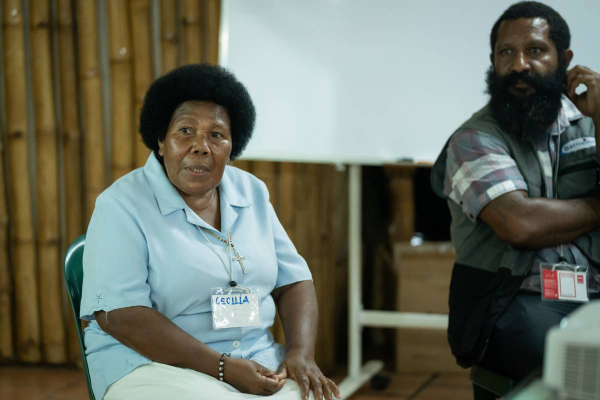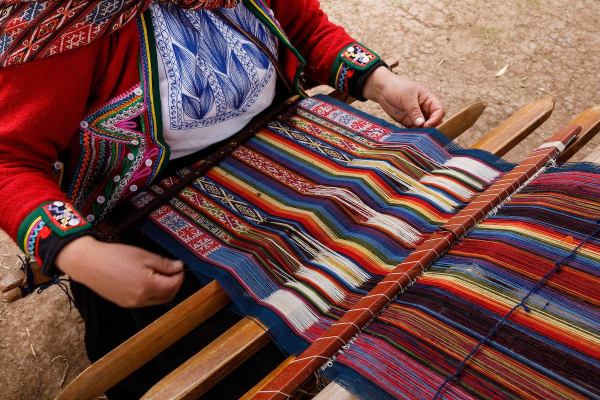From Bitterness to Freedom: Four Things to Know About the Journey of Forgiveness

The long slope stretched in front of me, a tangled mass of emerald vines set at an impossibly steep angle. My stomach was already churning as we neared the end of a full afternoon’s hike through the humid mountainside jungle, but I knew I had to push through my exhaustion to climb this last hill. There was no other way back to the compound where my family and fellow missionaries were training for life in Papua New Guinea.
A colleague moved ahead, her weary legs shaking as badly as mine. “Here,” she said, “if you grab this vine and pull yourself up, you’ll find a toehold under the leaves.” At that moment nothing in me believed I could make it to the top, but I followed her anyway. “Don’t think about the whole climb,” my friend grunted over her shoulder. “Just take the next step.”
So that’s what I did, and 10 minutes later I collapsed next to the others already panting at the peak. I’ve never been on a more physically demanding hike, but I’ve experienced an equally strenuous emotional path: the journey of forgiveness.
When we’re deeply wounded by someone, forgiveness doesn’t often come quickly or easily. Moving from bitterness and hurt to freedom can be an intensely challenging, draining process — like climbing a mountain — but it’s worth the work.
Here are four things to know as you set out on the arduous but vital journey of forgiveness:
1. Leaving the valley of bitterness is hard but staying is worse.
From the base of the steep path of forgiveness, the journey ahead can look intimidating or even impossible. Emotions and memories weave like vines and obscure the way forward. They tempt your weary soul to give in to despair and just set up camp in the valley of bitterness where gloom and decay keep you company.

“Surely God can’t expect me to make such a hard climb when I’m in so much pain,” you may think.
But that’s exactly what he asks you to do. Ephesians 4:31-32 says to “get rid of all bitterness, rage, anger, harsh words, and slander, as well as all types of evil behavior. Instead, be kind to each other, tenderhearted, forgiving one another, just as God through Christ has forgiven you” (NLT).
You’re not meant to stay in oppressive, soul-shriveling bitterness. You’re destined for the fresh winds of healing you’ll find higher up the slope.
2. You have to follow the right trail.
There are no shortcuts to forgiving someone because Jesus has already cleared the only viable trail: the forgiveness he’s given you. Other paths may tempt you with the promise of an easier road — like pretending away the hurt or packing down difficult memories — but every way other than the one Jesus has provided leads to a dead end.

When you truly understand the scope of the forgiveness Jesus gives, you can’t help but pass it on to the people around you. His overwhelming grace provides the motivation and strength to follow what would otherwise be an impossible mandate: “Since God chose you to be the holy people he loves, you must clothe yourselves with tenderhearted mercy, kindness, humility, gentleness, and patience. Make allowance for each other’s faults, and forgive anyone who offends you. Remember, the Lord forgave you, so you must forgive others” (Colossians 3:12-13, NLT).
3. The journey takes time and there can be setbacks.
Like most mountain trails, the path of forgiveness winds its way upward but can take longer than you might expect to reach the goal. At times I’ve felt like I’m just a stone’s throw from the top, almost fully healed and ready to move on, when the trail suddenly doubles back and I realize I still have a long way to go.

Whether setbacks happen because old memories surface or new offenses occur, forgiveness remains the only way forward. Jesus gave Peter a clear answer about how to deal with ongoing hurt: “Then Peter came to him and asked, ‘Lord, how often should I forgive someone who sins against me? Seven times?’ ‘No, not seven times,’ Jesus replied, ‘but seventy times seven!’” (Matthew 18:21-22, NLT)
Even when you have to limit or completely remove a person’s destructive access to your life — a response that’s necessary in some situations — you still may have to forgive that person every time they come to mind, continuously working through the repeated layers of hurt that remain. Thorough healing takes effort and time. Instead of thinking about the whole climb, just take the next step.
4. The higher you go, the more you see.
In the toxic soil of the valley of bitterness, twisted thoughts grow like gnarled branches, blocking your ability to see clearly. But as you keep climbing the path of forgiveness, you can see beyond the pit; life is no longer about only your own circumstances. With a broader perspective, you can see both how far you’ve come and the sprawling beauty of the bigger picture.

God’s redemption plan doesn’t end with your own healing; we’re part of a much larger, more astonishing story: “Against its will, all creation was subjected to God’s curse. But with eager hope, the creation looks forward to the day when it will join God’s children in glorious freedom from death and decay” (Romans 8:20-21, NLT).
Forgiveness isn’t just about moving beyond the control of past wounds; it’s about being brought from bitterness to freedom, from death to life along with all of God’s children and creation itself!
You have company on this journey of forgiveness, but ultimately the journey isn’t about other people — not your families or friends, your counselors or even the people you’re working to forgive. It’s about you: your relationship with God, his healing grace and the glorious freedom he offers.
No matter how long forgiveness takes, you can rest in this powerful promise: “And I am certain that God, who began the good work within you, will continue his work until it is finally finished on the day when Christ Jesus returns” (Philippians 1:6, NLT).






